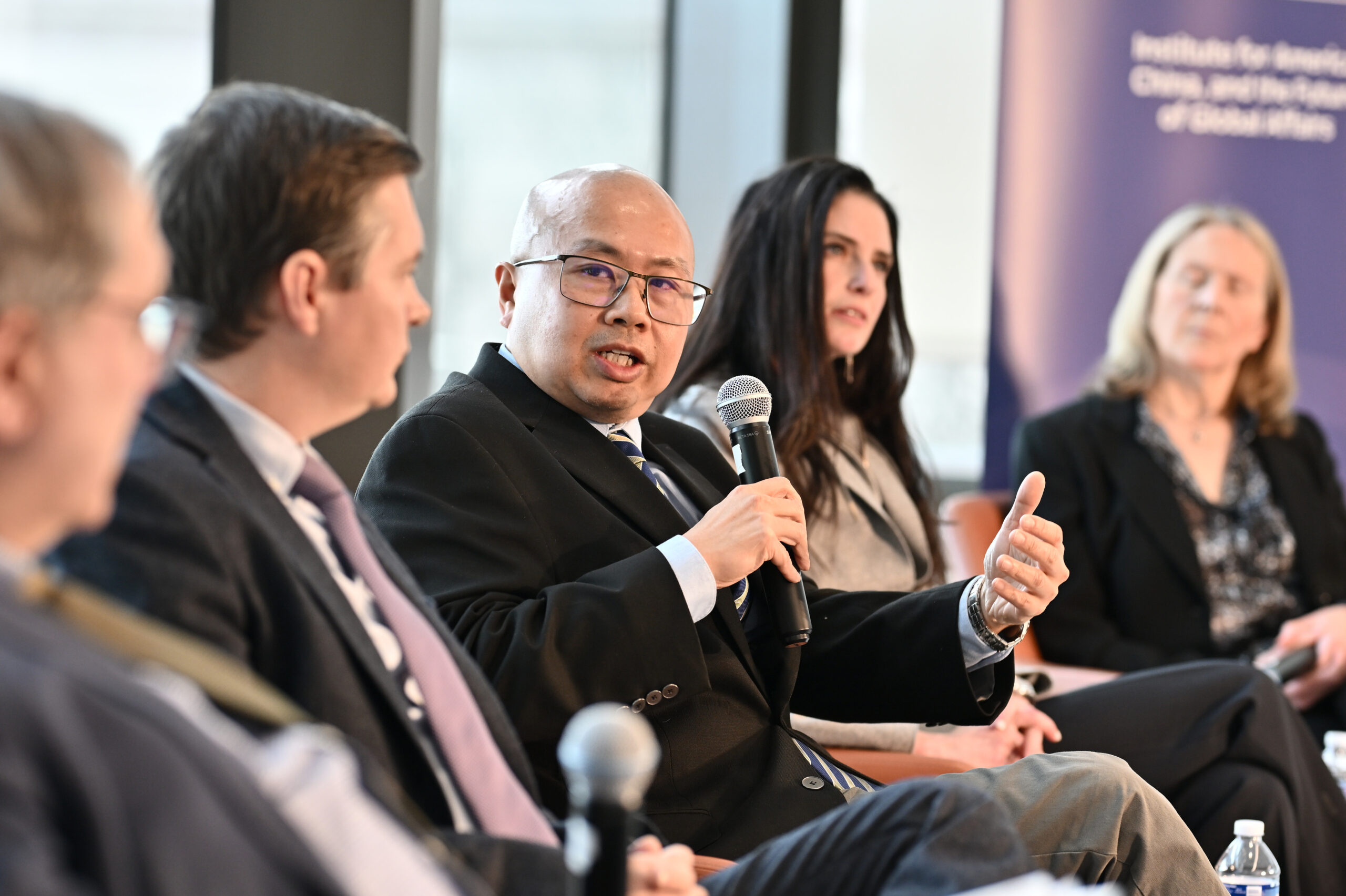How to address the nuances of U.S.-China policy
SAIS launches Institute for America, China, and the Future of Global Affairs

On the surface, there appears to be bipartisan agreement among policymakers in Washington that the United States must take a strong position against China.
But the situation is far knottier than that ostensible policy agreement implies, as America and China are deeply connected.
“On the question of how to deal with China from the United States, it’s not only impossible to make a cohesive argument, it’s impossible to make a [cohesive argument] within an administration,” New York Times journalist David Sanger said last month at a Johns Hopkins University Bloomberg Center event. He pointed to disagreements within the Trump administration between “heavy duty China hawks” and “a group of economic players who were trying to bite their tongue … about the 10% tariffs.”
Sanger’s comments came at an event marking the public launch of the Institute for America, China, and the Future of Global Affairs at the Johns Hopkins School of Advanced International Studies. The new institute aims to add rigor and reason to public and policy discussions on China. It released its inaugural report, “Getting China Right,” in early February.
Push and pull
The report’s introduction addresses the difficulty in building a national approach to China.
“Over the past five decades, the economies of the United States and China have become deeply entwined. This has brought Americans advantages as well as threats,” Jessica Chen Weiss, the director of the new institute, wrote.
She listed intellectual property theft, increasing cybersecurity attacks, and transnational repression as risks to the U.S. Simultaneously, China is an integral market that U.S. exports and American companies rely on the country for raw materials. Weiss added that “the United States has remained a net beneficiary of human capital from China” with Chinese immigrants contributing to American science and tech leadership.
Concerns about a broad-brush approach
Given the complexities of the U.S.-China relationship—and the long history of anti-Asian racism in America—panelists at the launch event cautioned against taking an overly broad-brush stance against China.
Margaret Pearson, a professor of government and politics at the University of Maryland, urged policymakers to distinguish among different threats, rather than treating them as a monolith.
For example, she said Chinese companies looking to buy land in the United States is “not on the same level” of “existential threats” as the sale of nanochips.
Ho-fung Hung, a professor of political science at the Johns Hopkins Krieger School of Arts and Sciences, says overreactions like land sale bans are counterproductive.
“Banning land buys helps Xi Jinping,” he said. “This kind of wolf hunt leads people to leave for China with their money.”